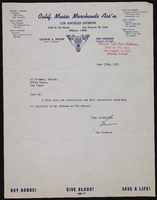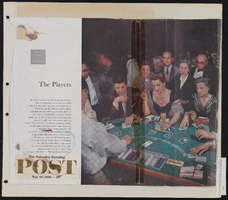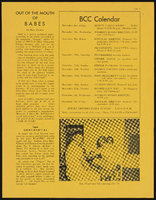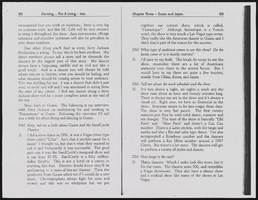Search the Special Collections and Archives Portal
Search Results
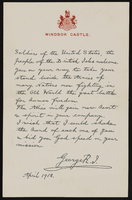
Letter to soldiers from George R.J., Windsor and Maidenhead (GBR.), April 1918
Date
1918-04
Archival Collection
Description
A letter from George R.J. to soldiers of the United States thanking them for their service. The Windsor Castle crest is at the top of the letter in red.
Image
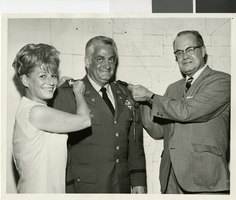
Photograph of Assemblywoman Eileen Brookman, Nevada Army National Guard Brigadier General Harry Wald and Senator Alan Bible, August 1968
Date
1968-08
Archival Collection
Description
A portrait of Nevada Assemblywoman Eileen Brookman, Brigadier General Harry Wald in Nevada Army National Guard dress uniform and Nevada Senator Alan Bible. The photograph was taken in August 1968 by LV News Bureau.
Image
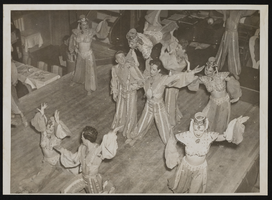
Photograph of Arden-Fletcher performers, Philadelphia (Pa.), 1950s
Date
1950 to 1959
Archival Collection
Description
Four male and five female Arden-Fletcher Dancers visible onstage at the Mocambo Supper Club. Possibly Donn Arden with arm upraised in center.
Image

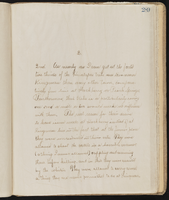
Pagination
Refine my results
Content Type
Creator or Contributor
Subject
Archival Collection
Digital Project
Resource Type
Year
Material Type
Place
Language
Records Classification


